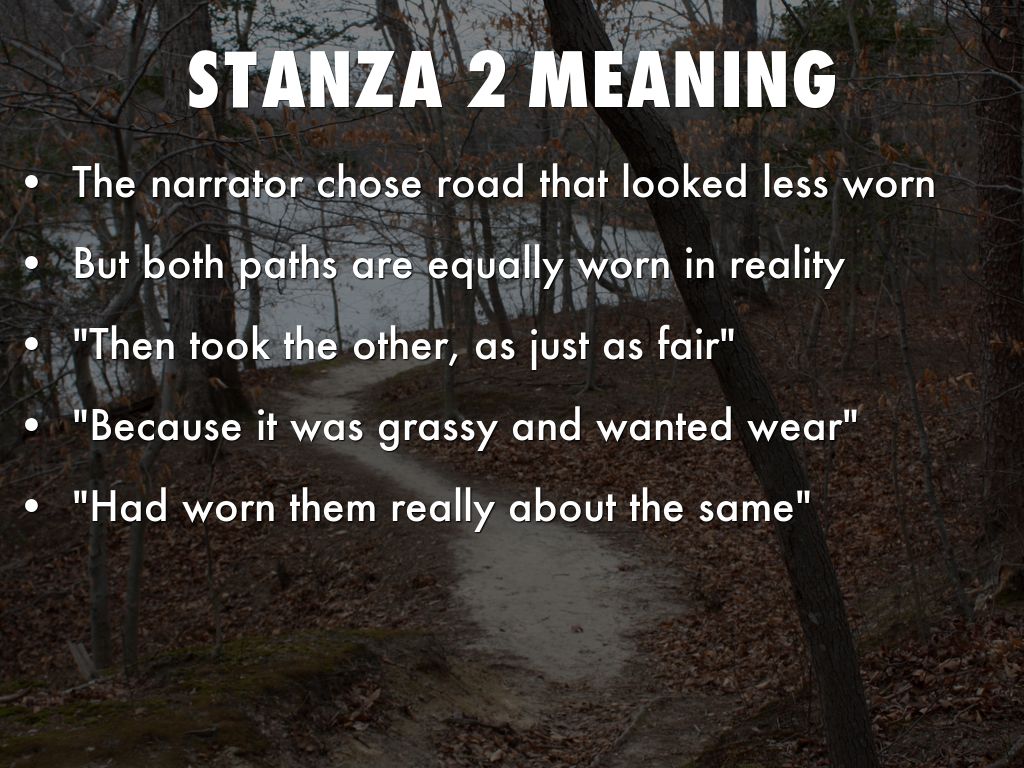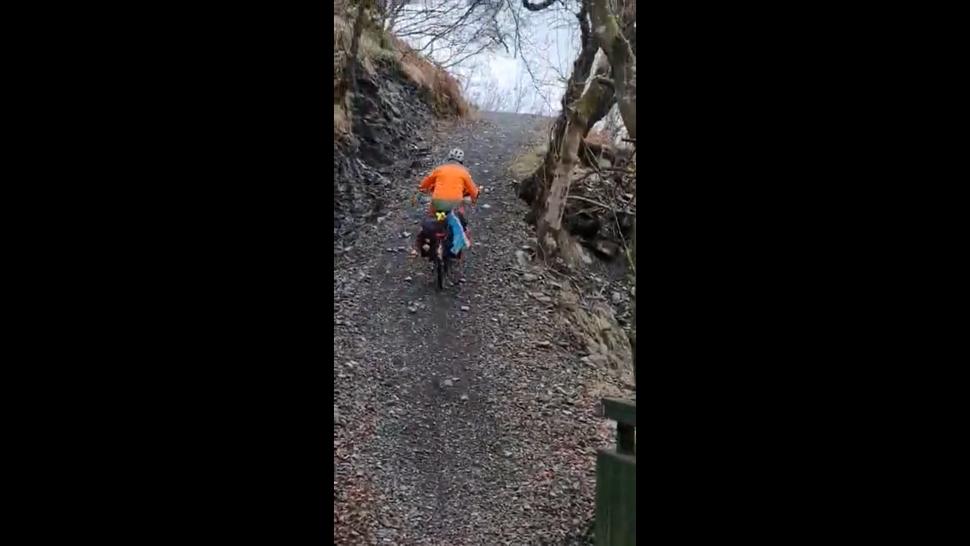
In this way, the poem encourages the reader to make their own “difference” in the world. This emphasis suggests the speaker is completely confident about their decision. If you listen to Frost reading the poem, which is available in the video below, he stresses the adjective “all” in the last line. This reading is reinforced by the repetition of “I” in the fourth verse because the tone seems to become defiant in the line “I took the one less traveled by”. This interpretation is supported by his terrible regret that he cannot “travel both” because he is “one traveller” who is unable to keep “the first for another day”.Īlternatively, an optimistic interpretation would view the title as a celebration of our individuality and the freedom to make our own “way” in life. Since the poem centers on the speaker’s choice between “two roads” which have “diverged”, the title “The Road Not Taken” could be focusing the reader’s attention towards the missed opportunity presented by the direction the speaker was unable to follow.

This also adds a sense of urgency and importance to the choice the speaker must make in the poem before the cold darkness of winter sweeps through the woods.

They are leaving the vitality of youth behind and are entering middle age. Setting the poem at this pivotal point in the seasons could be a metaphor for the age of the speaker. If the wood is “yellow”, then the leaves are beginning to turn from their vibrant green of summer to their autumnal colours. Therefore, Frost locates the story in the “wood” because it conveys the confusion and isolation we often feel in our lives. It could also represent an exciting or even sinister mystery because it is a place waiting to be explored. For example, its dark meandering lines is an effective signifier for our subconscious minds. A woodland is an unmapped wilderness writers can use to symbolise a range of ideas. Perhaps the speaker knows not to give into regrets. Of course, the word “sigh” could refer to a sense of relief. That optimism is immediately deflated when he “doubted” he would “ever come back” to the junction and have the option to take the other road.Īnother example of this regret is the sorrowful “sigh” in the last stanza which suggests he may never forget “The Road Not Taken”.

Perhaps the speaker is experiencing a moment of regret over his impetuous decision.Īfter the long and ponderous sentence, the short and melodramatic exclamative “Oh, I kept the first for another day” sounds a little ridiculous. In other words, the roads were “equally lay” and had “the same” qualities. However, when he walks along this route, he begins to realise the “leaves” had not been “trodden black” by his “passing there” and it was “worn… really about the same”. The first twelve lines of “The Road Not Taken” consists of just one sentence focusing on the speaker’s careful consideration of his two options, looking at “one” road for a “long” time and then impulsively taking the “other” because it seems “grassy” and “less traveled”. In the second line, the speaker mentions he is “sorry” he could not “travel both” roads and this sense of disappointment is reinforced several times in the poem. Although the speaker in “The Road Not Taken” seems to be confronted by a trivial dilemma, Frost uses the situation to explore how our identity can be determined by the more important choices in life. Our lives are shaped and defined by the choices we make every day, so we deliberate over competing arguments, worry about picking the wrong option and try to anticipate the impact of our decisions.

He decides to take this “less traveled” road and navigate his own way through the woods. Turning his attention to the “other” road, he initially believes it is “just as fair” and might even have the “better claim” because it was “grassy and wanted wear”. This is an obvious symbol for our uncertain future. Unfortunately, he can only see “down” the first road until it “bent in the undergrowth”, making it impossible to anticipate where it would end. Travelling through the “yellow wood”, the speaker is forced to choose between “two roads” which continue in different directions.


 0 kommentar(er)
0 kommentar(er)
